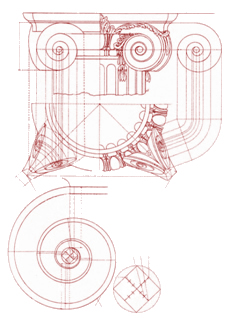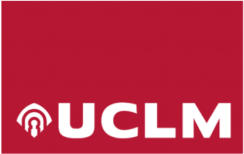

Toledo
Editorial
Editor
Jesús Padilla Gálvez
Secretary
Margit Gaffal
Publisher
Universidad de Castilla-La Mancha
https://blog.uclm.es/jesuspadilla/dokos
Editorial Plaza y Valdés
Calle de las Eras, 30, B.
E-28670 Villaviciosa de Odón (Madrid)
Telf./Fax: 00 34 916658959
madrid@plazayvaldes.com
Administration Address
Facultad de Ciencias Jurídicas y Sociales
Cobertizo de San Pedro Mártir, s/n.
E-45071 Toledo
Phone: 00 34 925 268800 (Ext.: 5126)
Fax: 00 34 925 268801
e-mail: jesus.padilla@uclm.es
Web: https://blog.uclm.es/jesuspadilla/dokos
© ISSN 1889-0202 – ISSN 1989-2020
Editorial Board
Norberto Abreu e Silva Neto (Universidade de Brasilia)
Christian Bermes (Universität Koblenz-Landau)
Pavo Barišic (Zagreb University)
Lahkim Bennani Azelarabe (Universitè de Fèz)
M. Jocelyn Benoist (Universite Paris-I Pantheon-Sorbonne)
Hans-Johann Glock (Universität Zürich)
Sabine Knabenschuh de Porta (Universidad del Zulia)
Michel Le Du (Université de Strasbourg)
Wilhelm Lütterfelds (Universität Passau)
Stefan Majetschak (Universität Kassel)
Carsten Dutt (University of Notre Dame, Universität Heidelberg)
Andreas Roser (Anton Bruckner Universität)
Severin Schroeder (University of Reading)
Mirko Wischke (Forschungsinstitut Hannover)
Contacts & Addresses
Editorial Address
Manuscript submission and inquiry; correspondence with trustees and editors
Prof. Dr. Jesús Padilla Gálvez
Dokos. Revista filosófica
Facultad de Ciencias Jurídicas y Sociales
Cobertizo de San Pedro Mártir, s/n.
E-45071 Toledo
( SPAIN )
Phone: 00 34 925 268800 (Ext.: 5126)
Fax: 00 34 925 268801
e-mail: jesus.padilla@uclm.es
Web: https://blog.uclm.es/jesuspadilla/dokos
Publisher
Editorial Plaza y Valdés
Calle de las Eras, 30, B.
E-28670 Villaviciosa de Odón (Madrid)
(SPAIN)
Phone: 00 34 91 6658959
Fax: 00 34 91 6658959
e-mail: madrid@plazayvaldes.com
Web: http://www.plazayvaldes.com/
Universidad de Castilla-La Mancha: https://blog.uclm.es/jesuspadilla/dokos
Frequency
Description
Description
Dókos. Revista Filosófica encourages submission of Articles, Communications and Reviews in all areas of Philosophy. Articles should be of broad interest and accessible to a wide audience of philosophers. They may be purely expository survey, or historical articles, or they may contain, in addition, new ideas or results or new approaches to old ones.
Dókos. Revista Filosófica is a refereed series of original papers in philosophy, edited by Jesús Padilla Gálvez, with the advice of an international Board of Editors; and published on the World Wide Web by the University of Castilla-La Mancha. The Imprint was founded in the spirit of the Open Access movement, whose mission is to promote a future in which funds currently spent on journal subscriptions are redirected to the dissemination of scholarship for free, via the Internet. Submissions to the Imprint are refereed anonymously and selected for publication on the basis of their estimated long-term significance.
Descripción
Dókos. Revista Filosófica anima al envío de Artículos, Comunicaciones y Reseñas sobre todas las áreas de Filosofía. Los artículos deberían abarcar un ámbito profundo y accesible a una amplia audiencia de filósofos. Los trabajos pueden presentar una revisión puramente expositiva, o desarrollar temas históricos, o pueden contener, además, nuevas ideas o nuevos accesos a viejos resultados.
Dókos. Revista Filosófica es una serie arbitrada de trabajos originales en filosofía, dirigida por Jesús Padilla Gálvez, con un Consejo internacional de Redactores. Se publica como revista y en el World Wide Web por la Universidad de Castilla-La Mancha. La edición persigue un espíritu de movimiento de acceso abierto. Su misión es la de promover un futuro en el cual los fondos que se publiquen sean remitidos para la propagación gratuita, vía internet. Las solicitudes para su edición son arbitradas de manera anónima y seleccionadas para la publicación sobre la base de su calidad, estimada a largo plazo.
Submitting a papper
Submitting a papper
The editor prefers electronic submissions. The preferred formats for electronic submissions are PDF, but other formats, such as Word documents, will be accommodated as best as possible. Compose your paper in a standard word-processing application. Prepare the paper for blind refereeing by removing personal references, including those which may be automatically inserted in the “Properties” or “Summary” field of the document.
Papers must be written in Spanish, German, French or English. They must not have been accepted or submitted for publication elsewhere. Copyright will remain with the author. Papers should include a short abstract (max. 150 words). Papers should not exceed an overall length of 3000 words, including all notes, references, and the abstract. Authors should use a simple uniform layout. They should avoid mixing fonts, and they should use italics (not bold) for words or phrases requiring emphasis, for titles of published books and journals, and for foreign words. A maximum of one level of section headings should be used, with the following format: 2. Wittgenstein’s Theory of Colour. A bibliographical list of all cited references should be placed at the end of the paper under the heading “Bibliografía”, “Literature (References)” or “Literatur”. It should begin with the author’s last name, first name and followed by the year of publication, exactly according to the following style:
Wittgenstein, L., 1980: Tractatus logico–philosophicus . Schriften 1 . Suhrkamp, Frankfurt a. M.
Frege, G., 1892: Über Sinn und Bedeutung, Zeitschrift für Philosophie und philosophische Kritik , 100, 25-50.
Sluga, H., Stern, D. G. (eds.), 1996: The Cambridge Companion to Wittgenstein . Cambridge U. P., Cambridge.
Padilla Gálvez, J., 2004: Disgressionen über das sich entwerfende Ich. In: Th. Mohrs, et alli (eds.), Die Wiederkehr des Idealismus? Festschrift für Wilhelm Lütterfelds zum 60. Geburtstag . Peter Lang, Frankfurt a. M., 137-153.
All citations should then appear in the text (rather than in footnotes) in the form: (Wittgenstein 1980, 178), (Frege 1892, 25), (Sluga 1996, 24) or (Padilla Gálvez 2004, 138). Avoid footnotes as far as possible. Avoid automatically generated lists. Authors will receive one proof. There is possibility for making corrections after submission. Contributions with serious formal or technical faults will be refused.
Entrega de los artículos
El editor prefiere documentos que sean enviados electrónicamente. Los formatos preferidos para sumisiones electrónicas son PDF, pero otros formatos, como documentos Word, serán acomodados como mejor sea posible. Componga su documento mediante un procesador de textos estándar. Prepare el artículo para el arbitraje de modo que no aparezcan referencias personales, incluyendo los que automáticamente pueden ser insertadas en “Características” o en el ámbito del “Sumario” del documento. Los trabajos deben ser escritos en español, alemán, francés o inglés. No deben haber sido aceptados o sometidos para la publicación en otra revista. Los derechos de autor seguirán siendo del autor. Los trabajos deberan incluir un resumen corto (150 palabras máximas) en español e inglés. Los trabajos no deberán exceder una longitud total de 3000 palabras, incluyendo todos los apuntes, referencias, y el resumen. Los autores deberían usar un maquetado simple e uniforme. Deberían evitar mezclar fuentes. Pueden usar las letras en cursivas para enfatizar palabras o frases, para los títulos de libros publicados y revistas, y para términos extranjeras. Para los títulos se debería usar el siguiente formato: 2. La Teoría de los colores de Wittgenstein. Al final del trabajo deberá aparecer una lista bibliográfica con todas las referencias citadas y llevará como título “Bibliografía”, “Literature (References)” o “Literatur”. Correspondería comenzar con el apellido del autor, el nombre de pila, seguido por el año de publicación, siguiendo la norma presente:
Wittgenstein, L., 1980: Tractatus logico–philosophicus . Schriften 1 . Suhrkamp, Frankfurt a. M.
Frege, G., 1892: Über Sinn und Bedeutung, Zeitschrift für Philosophie und philosophische Kritik , 100, 25-50.
Sluga, H., Stern, D. G. (eds.), 1996: The Cambridge Companion to Wittgenstein . Cambridge U. P., Cambridge.
Padilla Gálvez, J., 2004: Disgressionen über das sich entwerfende Ich. In: Th. Mohrs, et alli (eds.), Die Wiederkehr des Idealismus? Festschrift für Wilhelm Lütterfelds zum 60. Geburtstag . Peter Lang, Frankfurt a. M., 137-153.
Todas las citas deberían aparecer en el texto del siguiente modo: (Wittgenstein 1980, 178), (Frege 1892, 25), (Sluga 1996, 24) (o Padilla Gálvez 2004, 138). Evite notas al pie de página en la medida de lo posible. Evite listas automáticamente generadas. Los autores recibirán una prueba. Hay posibilidad de hacer correcciones después del envío del trabajo. Las contribuciones con serios defectos formales o técnicos serán rechazadas.
Rights & Permissions
1. Statement of Copyright Policy
Dokos. Revista filosófica is a copyrighted periodical. We would like to draw your attention to the protection copyright affords against multiple photocopying by libraries, instructors, and copy centers. The spanish copyright law provides that photocopies in excess of “fair use” copying cannot be made without authorization by the copyright owner. “Fair use” meaning single copying for personal use.
2. Electronic Publishing
At the moment, Dokos. Revista filosófica is currently granting permission to publishers for the use of our copyrighted material in digital form, for use on websites or electronic archives.
3. To our Authors, concerning Copyright
In accepting your manuscript for publication, we wish to acquaint you with our copyright policies and to enlist your cooperation. Copyright protects you from plagiarism and pirating, and ensures that your text cannot be altered without your consent. Copyright also allows you or your publisher to offset expenses in publishing your work by means of royalties.body=
Subscribe
Unsubscribe
Philosophy Links
Societies
ALWS – http://www.alws.at/
APA – http://www.apaonline.org/
British Wittgenstein Society – http://www.britishwittgensteinsociety.herts.ac.uk/
FDÖP – http://www.austrian-philosophy.at/
GAP – http://www.gap-im-netz.de/
ILWG – http://www.ilwg.eu/
IVC – http://www.univie.ac.at/ivc/
Fñ – http://www.filosofia.org/
SAAF – http://www.uned.es/dpto_fil/saaf/info.htm
SEFA – http://www.sefaweb.es/
SEL – http://www.leibnizsociedad.org/
WAB – http://gandalf.aksis.uib.no/wab/
Universities
UCLM – http://www.uclm.es/
Libraries
BN – http://www.bne.es/
B-UCLM – http://www.biblioteca.uclm.es/
Jstor – http://www.jstor.org/
KVK – http://www.ubka.uni-karlsruhe.de/kvk/kvk/kvk_en.html
LoC – http://www.loc.gov/index.html
Journals
A Parte Rei – http://serbal.pntic.mec.es/~cmunoz11/index.html
Information Philosophie – http://www.information-philosophie.de/
Journal of philosophy – http://www.journalofphilosophy.org/
Philosopher’s Index – http://www.philinfo.org/journals.htm
Philosophy of Science – http://www.journals.uchicago.edu/toc/philsci/current
Teorema – http://www.uniovi.es/Teorema/
Theoria – http://www.sc.ehu.es/ilwtheor/index.htm
Information
IEP – http://www.iep.utm.edu/
Inf ofilo – http://www.infophilo.info/liens.htm
Sammelpunkt – http://sammelpunkt.philo.at:8080/
SOFI – http://www.sofi.ucl.ac.be/fico/fico.html
Wittgenstein Links – http://www.helsinki.fi/~tuschano/lw/links/
